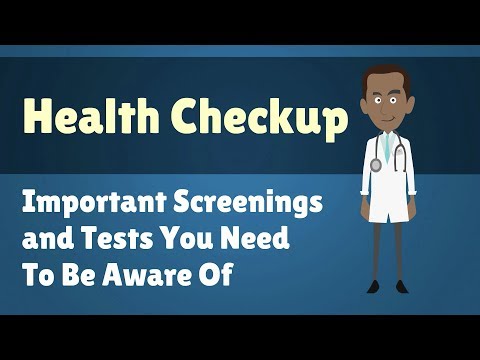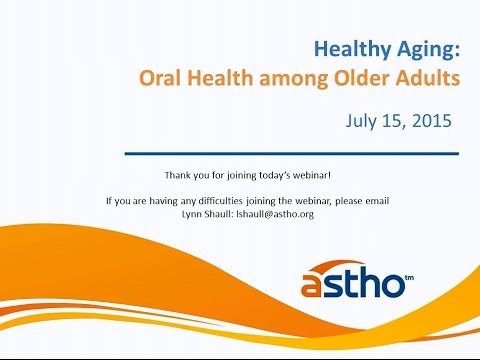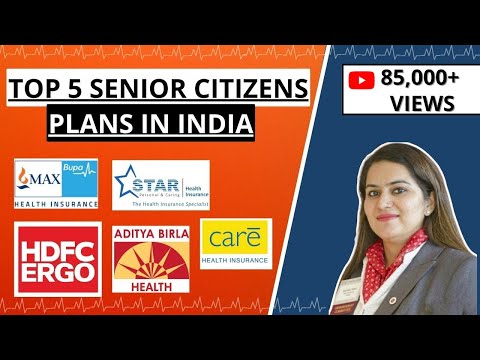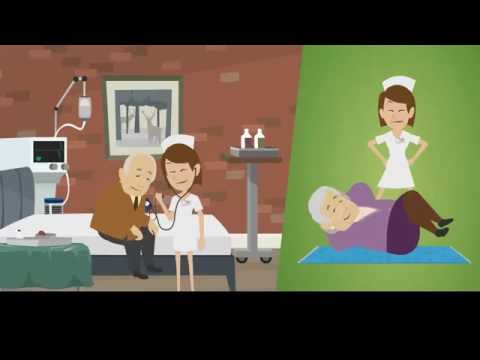Health Screenings for the Elderly: What You Need to Know
Contents
- Introduction
- What are health screenings for the elderly?
- Who should get screened?
- What screening tests are available?
- What are the benefits of health screenings for the elderly?
- What are the risks of health screenings for the elderly?
- How often should health screenings be done for the elderly?
- What are the costs of health screenings for the elderly?
- What are the alternatives to health screenings for the elderly?
- Conclusion
As we age, it’s important to stay on top of our health. Part of that is getting regular health screenings. But what screenings should the elderly be getting?
Here’s a quick rundown of some of the most important health screenings for the elderly:
Blood pressure: High blood pressure is a common problem in the elderly. A simple blood pressure test can help catch it early.
Cholesterol: Cholesterol levels tend to rise as we age.
Checkout this video:
Introduction
Elderly adults are at increased risk for various chronic conditions and illnesses, which is why it is important for them to undergo regular health screenings. These screenings can help to detect potential health problems early on, when they are more easily treatable.
There are a number of different health screenings that are recommended for elderly adults, depending on their age, gender, and overall health. Some of the most common screenings include tests for blood pressure, cholesterol, colon cancer, and breast cancer.
It is important to talk to your doctor about which screenings are right for you, based on your individual risk factors. Some people may need to undergo more frequent or more extensive screenings than others. However, even if you are healthy and have no known risk factors, it is still important to have regular check-ups with your doctor and to keep up with recommended screening guidelines.
What are health screenings for the elderly?
As people age, they become more susceptible to developing chronic diseases such as heart disease, stroke, cancer, and diabetes. To help prevent these diseases, or detect them early when they are more treatable, health care providers recommend that people 65 and older have certain health screenings.
Health screenings for the elderly usually involve a blood test or a scan. The specific tests that are recommended depend on the individual’s age, health history, and family history. For example, someone with a family history of colon cancer may be advised to start having colonoscopies at an earlier age than someone without that history.
Below is a list of some common health screenings for the elderly. This is not an exhaustive list, so be sure to talk to your Health Care provider about which screenings are right for you.
-Blood pressure screening: High blood pressure increases the risk for stroke and heart disease. People aged 60 and older should have their blood pressure checked at least once every two years.
-Cholesterol screening: High cholesterol levels can lead to atherosclerosis (hardening of the arteries), which can increase the risk for heart attack and stroke. People aged 45 and older should have their cholesterol checked at least once every five years.
-Colorectal cancer screening: Colorectal cancer is the second leading cause of cancer death in the United States Screening can help detect precancerous polyps so they can be removed before they turn into cancer. People aged 50 and older should have a colonoscopy every 10 years or a flexible sigmoidoscopy every five years.
-Diabetes screening: Diabetes increases the risk for heart disease, stroke, kidney disease, and other serious health problems People aged 45 and older should have their fasting blood sugar checked at least once every three years.
-Prostate cancer screening: Prostate cancer is the most common cancer in men over the age of 50. The prostate specific antigen (PSA) test can help detect prostate cancer early when it is most treatable. Men aged 50 andolder should discuss with their health care provider whether they should have this test.”
Who should get screened?
As people age, they are at increased risk for certain diseases and conditions. To help find these problems early, when they may be easier to treat, Medicare covers many preventive services, including screenings, vaccinations, and annual wellness visits.
Some screenings are covered for all adults. Other screenings are covered for adults at higher risk for a certain condition because of their age, gender, family history, or lifestyle. You may need to pay a copayment or coinsurance for some preventive services.
Your doctor may also recommend other tests and screenings based on your individual health needs. These aren’t always covered by Medicare.
talk to your doctor about which screenings and vaccines are right for you.
What screening tests are available?
As people age, their risk for certain chronic diseases increases. To help identify these conditions early, when they’re most treatable, seniors are advised to get regular health screenings.
There are a range of screening tests available, depending on your age and health history. Some common screening tests for seniors include:
-Blood pressure test: High blood pressure is a common condition in the elderly and can lead to serious health complications, such as heart disease and stroke. A blood pressure test is a simple way to check if your blood pressure is in the healthy range.
-Cholesterol test: High cholesterol is another common condition that can increase your risk of heart disease and stroke. A cholesterol test measures the levels of cholesterol in your blood and can help determine if you’re at risk for these conditions.
-Colon cancer screening: Colon cancer is one of the leading causes of cancer death in seniors. A colon cancer screening can help find precancerous lesions or early-stage cancer, when it’s most treatable. There are several different types of colon cancer screenings available, including colonoscopy, flexible sigmoidoscopy, and barium enema. Talk to your doctor about which option is right for you.
-Breast cancer screening: Breast cancer is the most common type of cancer in women, and the risk increases with age. Mammograms are the best way to screen for breast cancer, and women over the age of 50 are advised to get one every two years. Women at high risk for breast cancer (such as those with a family history) may need to be screened more often.
-Bone density test: As people age, they lose bone density, which can lead to osteoporosis. A bone density test uses X-rays to measure the amount of minerals in your bones and can detect osteoporosis before any symptoms develop.
What are the benefits of health screenings for the elderly?
Health screenings can have many benefits for the elderly. They can help to identify potential health problems early, before they become more serious. Health screenings can also help to monitor the progress of chronic conditions, such as heart disease or diabetes. In some cases, health screenings can even help to prevent health problems from developing in the first place.
There are many different types of health screenings that are recommended for the elderly. These screenings can detect a wide variety of potential health problems, including high blood pressure, high cholesterol, cancer, and more. Some of the most important screenings for the elderly include:
-Blood pressure screening: High blood pressure is a common problem among the elderly, and it can lead to serious complications such as stroke and heart disease. A blood pressure screening can help to identify high blood pressure early so that it can be treated before it becomes a more serious problem.
-Cholesterol screening: High cholesterol is another common problem among the elderly, and it is a major risk factor for heart disease. A cholesterol screening can help to identify high cholesterol levels so that they can be controlled with medication or lifestyle changes.
-Cancer screening: Cancer is a leading cause of death among the elderly, but early detection of cancer can often lead to successful treatment. There are many different types of cancer screenings available, including mammograms, colonoscopies, and Pap smears. Talk to your doctor about which cancer screenings are recommended for you based on your age and health history.
-Bone density testing: Osteoporosis is a common condition among the elderly, and it can lead to fractures and other complications. Bone density testing can help to diagnose osteoporosis so that it can be treated with medication or lifestyle changes.
What are the risks of health screenings for the elderly?
There are a number of health screenings that are recommended for people as they age. While these screenings can be important in detecting disease or identifying risk factors for disease, they also have potential risks.
One potential risk of health screenings is false-positive results. This occurs when a screening test indicates that there is a problem when there really isn’t one. For example, a mammogram may show an abnormal area that turns out to be benign after further testing. False-positive results can lead to unnecessary anxiety and may even lead to more invasive testing, such as biopsies, which carry their own risks.
Another potential risk of health screenings is false-negative results. This occurs when a screening test fails to detect a disease or condition that is present. One example of this is prostate cancer screening with the prostate-specific antigen (PSA) test. The PSA test may give a false-negative result in men who really do have prostate cancer. This could delay diagnosis and treatment of the cancer, leading to poorer health outcomes.
Before having any health screening, it’s important to discuss the potential risks and benefits with your doctor or other healthcare provider.
How often should health screenings be done for the elderly?
There is no one-size-fits-all answer to this question, as the frequency of health screenings for the elderly will vary depending on a number of factors, including the overall health of the individual and any specific health concerns that they may have. However, as a general rule, it is recommended that elderly adults receive a comprehensive physical examination at least once per year, and more frequently if they have any underlying health conditions. Additionally, there are a number of specific screenings and tests that are recommended for adults aged 65 and over, which can help to detect potential health problems early and allow for prompt treatment.
What are the costs of health screenings for the elderly?
There is no one answer to this question as the cost of health screenings for the elderly can vary greatly depending on a number of factors. These factors can include the type of screening being done, where the screening is taking place, and whether or not insurance will cover the cost. With that being said, there are some general ballpark figures that can give you a better idea of what to expect.
For example, a colonoscopy – a common screening test for colon cancer – typically costs between $1000 and $3000. A mammogram – a screening test for breast cancer – typically costs between $100 and $250. And a bone density test – a screening test for osteoporosis – typically costs between $100 and $200. These are just some of the more common screenings that are recommended for the elderly population, so it’s important to speak with your doctor to get a fuller picture of what exactly is recommended for you and how much it may cost.
What are the alternatives to health screenings for the elderly?
There is no one-size-fits-all answer to this question, as the best approach to health screenings for the elderly will vary depending on the individual’s overall health and medical history. However, some common alternatives to health screenings for the elderly include:
-Home health assessments: These assess an individual’s risk factors for various health conditions, and can be conducted by a nurse or other healthcare professional.
-Community outreach programs: These programs provide information and resources on health screenings and other preventive measures to older adults in the community.
-Senior centers: Many senior centers offer health education programs, which can include information on health screenings and other preventive measures.
Conclusion
As you can see, there are a variety of health screenings that are recommended for elderly adults. While some of these screenings may be covered by insurance, others may not be. It’s important to talk to your doctor about which screenings are right for you and to make sure that you’re up-to-date on all of the recommended screenings.







